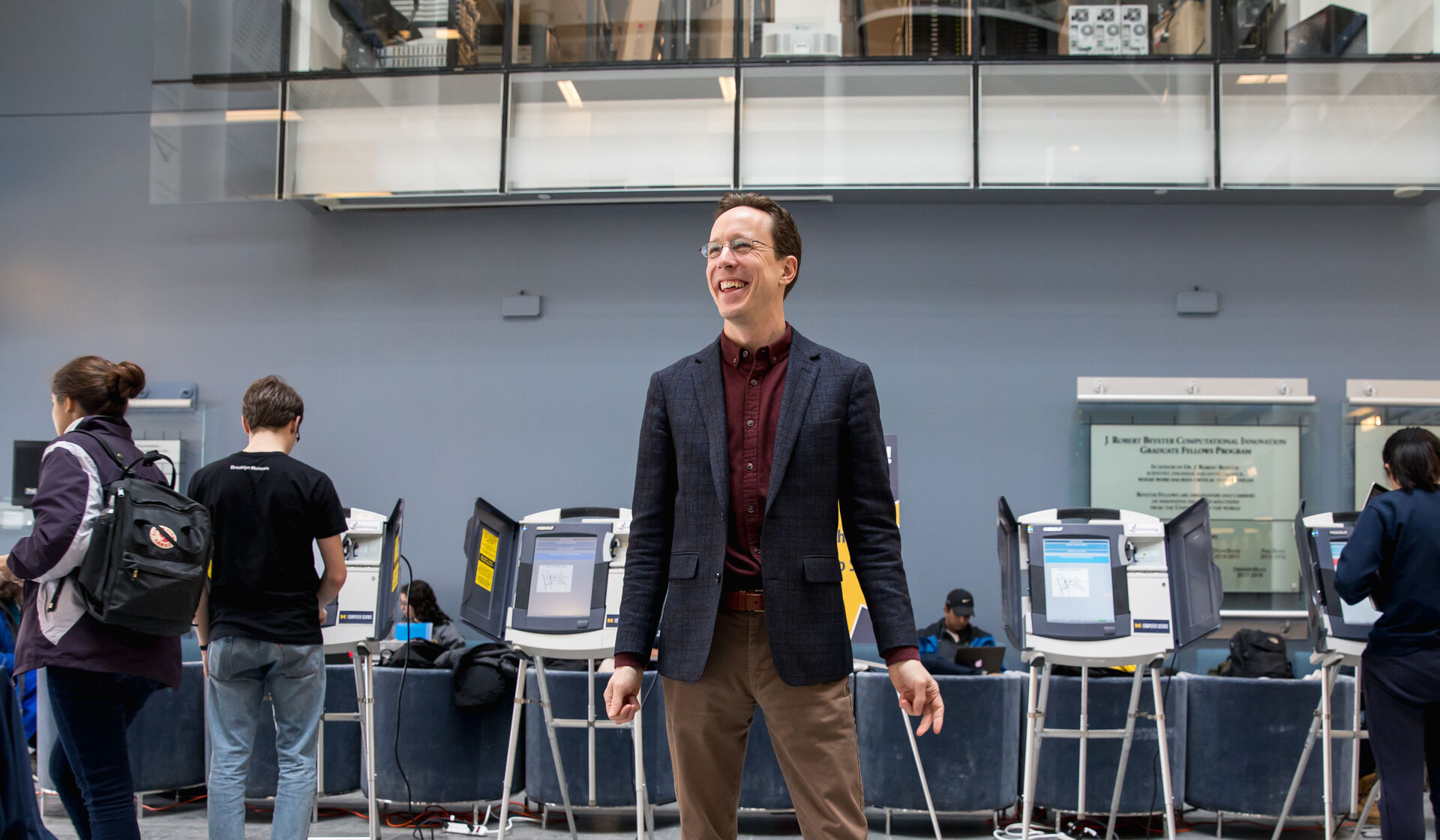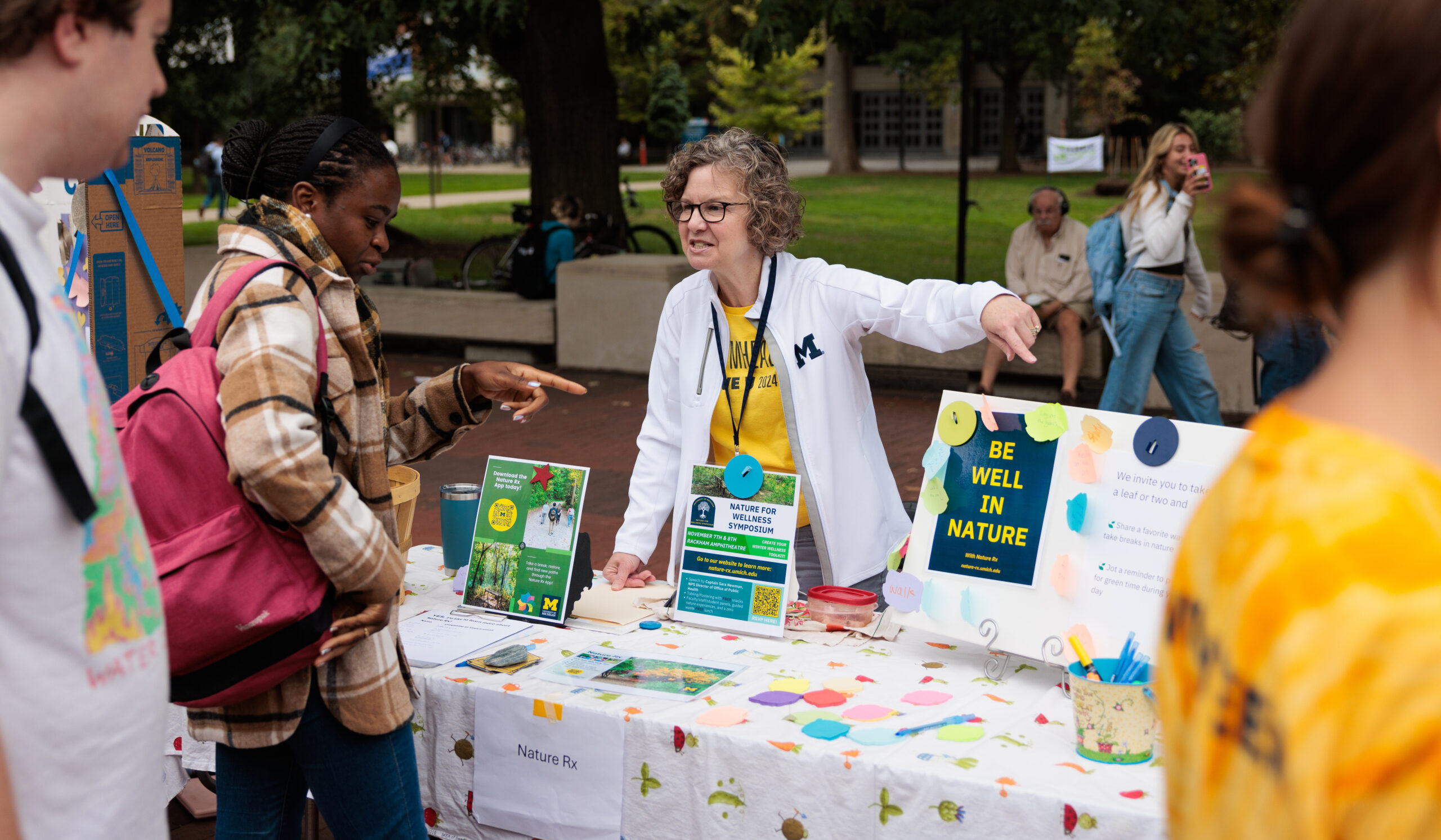With the close of 2017—the University’s bicentennial year—the “Last Page” of this magazine (which focused on the bicentennial for the past two and a half years) has become “Around Town.” With this change, we plan to connect our readers back to their favorite college town in each issue.
“I wanna go back to Michigan, to dear Ann Arbor town.”
That lyric to an old campus song, which I first sang as a member of the U-M Men’s Glee Club in 1975, is one that former clubbers may croon when homesick for campus but I sing cheerfully. I was raised in Ann Arbor, went to U-M, and now live and work here, making me an ultimate “townie.”
Ann Arbor was a great place to grow up. It is a micrometropolis with many big city attractions. As a child, I spent many afternoons exploring the University’s “dinosaur” in the Ruthven Museums Building. I experienced free concerts at Hill Auditorium and autumn Saturdays soaking up the spectacle in Michigan Stadium. Just down the street from my dad’s office, the best Hollywood films played on the big screens of the old, tired, but still-glorious downtown movie theaters: the State and the Michigan.
Eccentricities have always permeated Ann Arbor. When my high school, Ann Arbor Huron, was established in the late 1960s, the students chose for its mascot the River Rat. Where else but a crazy college town would such a mascot be the focus of school pride? Go Rats!
As my days as a River Rat waned, I yearned to be a Wolverine. Providentially, that wish came true. As a U-M student, I then performed in the Big House with the Michigan Marching Band. I sang with the Glee Club and the Friars in Hill Auditorium, and I performed in theater productions at the Power Center.
I also spent my free time and spare change attending classic films and controversial art house cinema. These “alternative” films were screened daily back then at Lorch Hall, Angell Hall, and the Modern Language Building. Midnight movies flickered as well for enthusiastic, mostly student audiences at the State Theatre.
Providence smiled on me again when my theater management professor, J. Roland Wilson, recommended me for a scholarship in arts administration. Two years later, with my master’s degree in hand, I was hired as executive director of the Michigan Theater.
The theater had just been saved from demolition and was re-emerging as an Ann Arbor community nonprofit, thanks to the intervention of a few U-M alumni: Professor Henry Aldridge, PhD’73; the theater’s technical director, J. Scott Clarke, ’75; and visionary philanthropist Margaret Towsley, ’28, HHLD’93.
For the next three decades, the Michigan Theater developed into a nationally recognized leader in theater restoration, an essential “town and gown” performing arts venue and an internationally acclaimed art house cinema. In 2014, the Michigan Theater Foundation purchased the State Theatre, saving it from becoming office space, and last year—35 years after starting my college-town career—we finished renovating that cinema. Now, once again, it is a glorious art deco movie-maven retreat and date-night destination.
Occasionally, I wonder what would have happened had I taken the typical artistic career path and migrated to New York or Los Angeles. But thanks to a couple of old theaters needing persistent work and community love, I have been able to flourish here professionally, while staying in both my hometown and college town. I am also happy to report that my wife, kids, and grandkids all know the song and sing along with me, ironically, the words “I wanna go back to Michigan, to dear Ann Arbor town.”
Russell B. Collins, ’79, MA’81, is the executive director of the Michigan Theater Foundation in Ann Arbor. He is also founding director of Art House Convergence in Utah and the founder of the Cinetopia Festival in Detroit and Ann Arbor.





